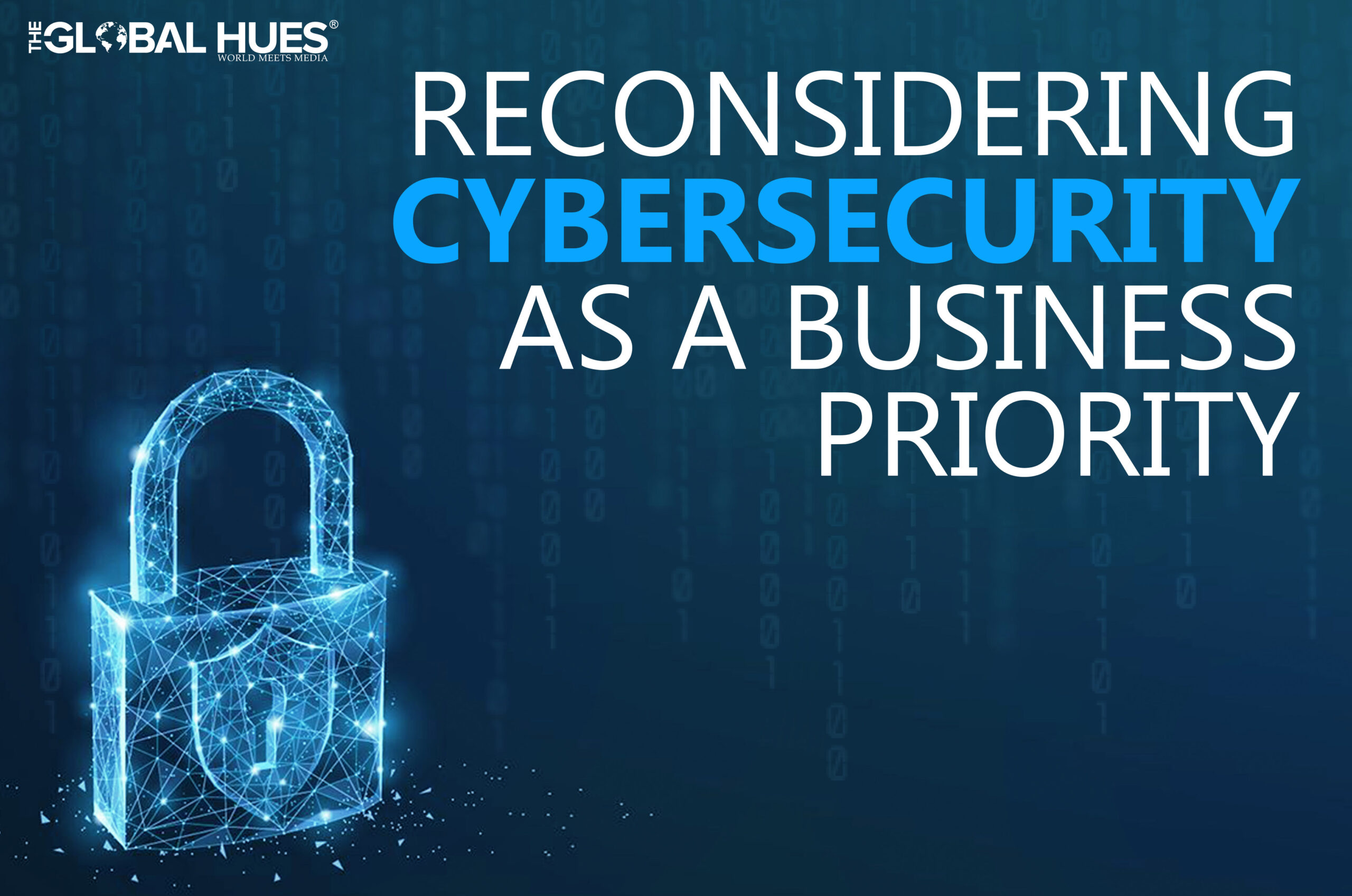“Cybersecurity should be the top concern of all business organizations, with increasing threats affecting the company’s growth, here’s why you need to reconsider it as a priority”
Business and security leaders around the globe are being challenged to change the way they look at cybersecurity, owing to many reasons such as a snail-paced growth in budget & dissatisfied board teams. Businesses have always been segregated from cybersecurity by a blurry imaginary line. The difficulty lies with board members of businesses denying to understand the influence it can have in their organizations whereas others approach it simply as a technical challenge that is dictated purely by technology and regulation.
Businesses are under threat today by cybercriminal groups with unparalleled powers. Attack on companies through ransoms, business interruptions, and remediation costs can cost them a fortune. Cybersecurity is surely a business problem that cannot be passed over by any organization – irrespective of its size.

The cost of a data breach could be a starting point to understand cybersecurity. Cyber security program prepare the employees to handle business situations related to cyber threats. This enables organizations to re-think it not just as a business proposition and not simply as a technological fix. Achievement of goals in an organization’s core competencies is only possible through keeping cybersecurity in its required business context. Organizations that have in the past, side-lined their spending on cybersecurity are today being made to face the stark reality. The expenditure on cybersecurity grew globally at a Compound Annual Growth Rate of 12% but the latest projections by Gartner foresees a drop to 7% by 2023.
CYBER-SECURITY AS A BUSINESS DECISION
As a business grows and prospers, security is vital for its flourishment and that is why cybersecurity is a business decision.
One can find more reasons for the same in Absolute’s State Of Endpoint Resilience Report :
- In the report, it was discovered that More than ⅓ of enterprise devices had client management or VPN application of an Endpoint Protection out of compliance, making the organization vulnerable to possible threats.
- The report also reflects what happens when cybersecurity spending is not relying on a concrete business model, often leading to multiple endpoint security agents. The study reflected that there was no assurance. An agent – whether sourced from an innovative or a single vendor will work smoothly together to ensure the security of an organization.
- Patches get disseminated and installed whenever there seems to be a gripping business case that promises to keep all machines current. But when such cases are not there, on average operating system patches get 95 days late. The Windows 10 enterprise device contains many possible vulnerabilities, including 4 zero-day vulnerabilities without a fix applied. Post-Covid 19, the age of an average patch has declined a little, driven by the business case of supporting an entirely remote workforce.
- The Bottom line being that about 60% of the total breaches are associated with a vulnerability wherein a patch was not applied despite being available.
- The report also stated that the organizations that had concrete business cases for their cybersecurity programs were able to adapt better by securing the vulnerable endpoint devices in addition to the sensitive data contained in those devices, being used by employees at home. The study revealed the quantity of data such as – Personal Identifiable Information, Protected Health Information, and Personal Financial Information data – identified on endpoints mounted with the pandemic that caused people to work from home from their devices remotely Autonomous endpoints, with an unbreakable digital tether are required for the health and security of a device, without which there can arise possibilities of data exposure, damages, violations, compliance, etc.
COVID-19 SCALING UP CYBER-SECURITY STRATEGIES
From a business perspective, the pandemic made cybersecurity a substantial factor in all decision-making processes. This was reported in a study conducted by PWC which after surveying 3,249 businesses found that majority of businesses in the UK were scaling up their cybersecurity strategy by considering it in every decision ever since the covid outbreak started. Moreover, a third of these organizations are now planning to soar up their digital transformation efforts. It implies that the role of Chief Information Security Officer (CISO) would become even more noteworthy within the hierarchy.
Buying cybersecurity solutions is still an unnerving assignment. Around 38 percent of UK respondents were certain that their cyber budget was allocated to the major crucial cyber risks. However, most of them have plans to spend more on it in the coming year. The Cyber Security Chair at PWC, Richard Horne found this lack of confidence “surprising”. According to him, businesses would need to improve the way they look at cyber threats and the risks involved and make it a vital part of their business decisions.Incidents related to cyber security increased steadily during the pandemic. In 2020, the cyber security incidents spiked from 3,94,499 in 2019 to 11,58,208 as per the data shared by the government. The government, to raise prevent such cyber incidents, has launched Cyber Swachhta Kendra (Botnet Cleaning and Malware Analysis Centre). The objective is to create security cyberspace in India. It will operate in coordination and collaboration with internet service providers/antivirus companies.
SUMMING UP
To sum up, we can say that cybersecurity as a business decision is the need of the hour as the need to keep a business secure while fueling its growth, is growing rapidly.
Also Read:
- All you need to know about Indian & Worldwide CyberLaws
- Ritesh Bhatia: Necessity Of Cybersecurity In The Post-Covid World
- Bala Venkatramani: Resolving Vulnerabilities And Loopholes In Cybersecurity
- Rizwan Shaikh: Cybersecurity Expert Administering The Art Of Ethical Hacking
- Reconsidering Cybersecurity As A Business Priority
- Children’s Online Safety & Cybersecurity: A Modern Necessity
- Importance Of Digital Forensics In Maintaining Cybersecurity
- Underrepresentation Of Women In Cybersecurity
- 10 Cybersecurity Companies Building A Secure India




